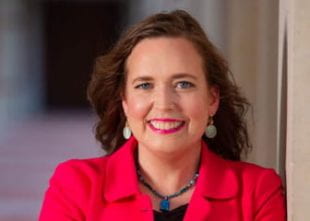New book by Rice scholars examines what scientists around the globe really think about religion
Is conflict between religion and science an invention of the Western world? A new book by Rice University scholars and others makes the case for this point while highlighting the complicated relationship between religion and science in the lives of scientists.
“Secularity and Science: What Scientists Around the World Really Think About Religion” (Oxford University Press, 352 pages, $29.95) is based on the largest international study ever undertaken to document scientists’ attitudes toward religion. The five-year project, Religion Among Scientists in International Context, explored the perceived conflict between science and faith, the cultural factors that shape the attitudes of scientists toward religion, how scientists view spirituality, and if and how scientists can build collaboration between scientific and religious communities.
The authors surveyed more than 20,000 scientists in France, Hong Kong, India, Italy, Taiwan, Turkey, the United Kingdom and the United States and conducted in-depth interviews with more than 600 of them. From this data, they extracted what they call “the real story” of the relationship between science and religion in the lives of scientists around the world.
The book makes four key points:
-The idea that religion and science must conflict is primarily an invention of the West.
-There are more religious scientists than we might think.
-Religion and science overlap in scientific work.
-Scientists — even those who are atheists — see spirituality in science.
The book couples the study’s representative survey data with stories from individual scientists, whose experiences highlight the text’s key claims.
Lead author Elaine Howard Ecklund, professor of sociology, the Herbert S. Autrey Chair in Social Sciences and director of Rice’s Religion and Public Life Program, worked with fellow authors Kirstin R.W. Matthews, Senior Baker Institute Fellow, adjunct lecturer in sociology and lecturer in biosciences at Rice; Steven W. Lewis, Senior Baker Institute Fellow, associate director of the Chao Center for Asian Studies and professor in the practice at Rice; David R. Johnson of the University of Nevada, Reno; Brandon Vaidyanathan of the Catholic University of America; Robert A. Thomson Jr. of the University of Alabama in Huntsville; and Di Di of Santa Clara University.
“We hope that the book will shed light on the stereotypes that both the religious and the scientific communities in different nations have about the religious lives of scientists. We want to provide a fresh and more nuanced understanding of how science and religion interact for the greater good,” Ecklund said.
More information on the book is available at https://global.oup.com/academic/product/secularity-and-science-9780190926755?cc=us&lang=en&.
More information about Rice’s Religion and Public Life Program is available online at https://rplp.rice.edu/.


